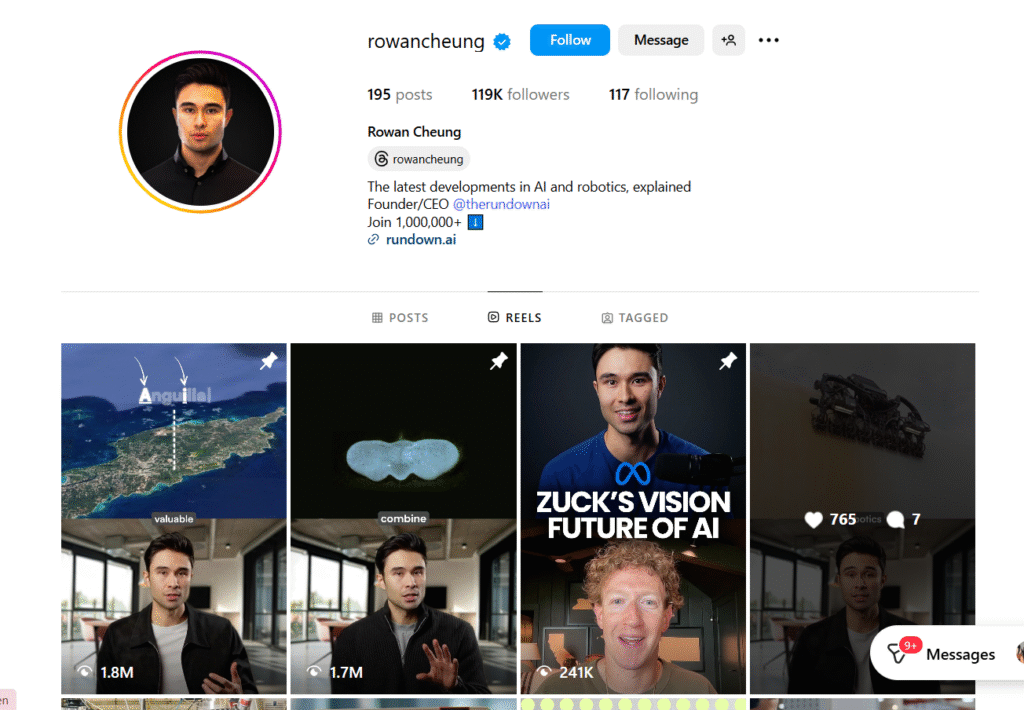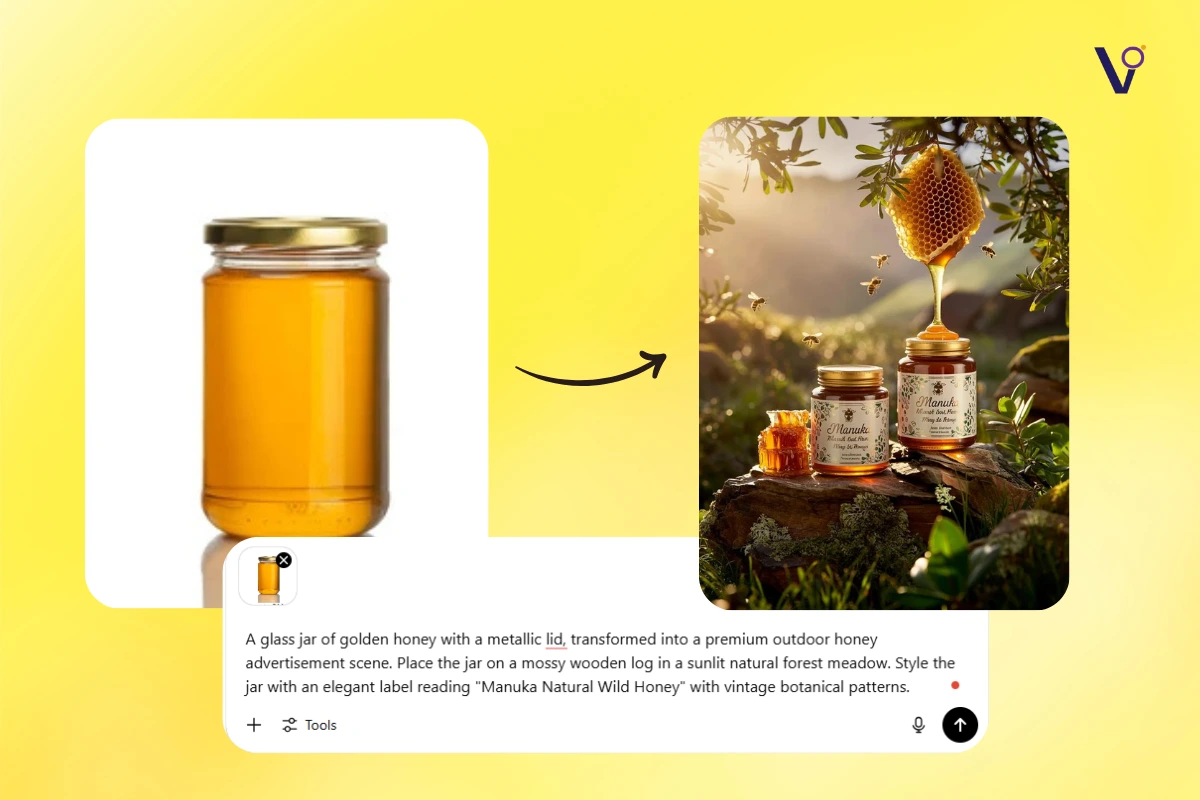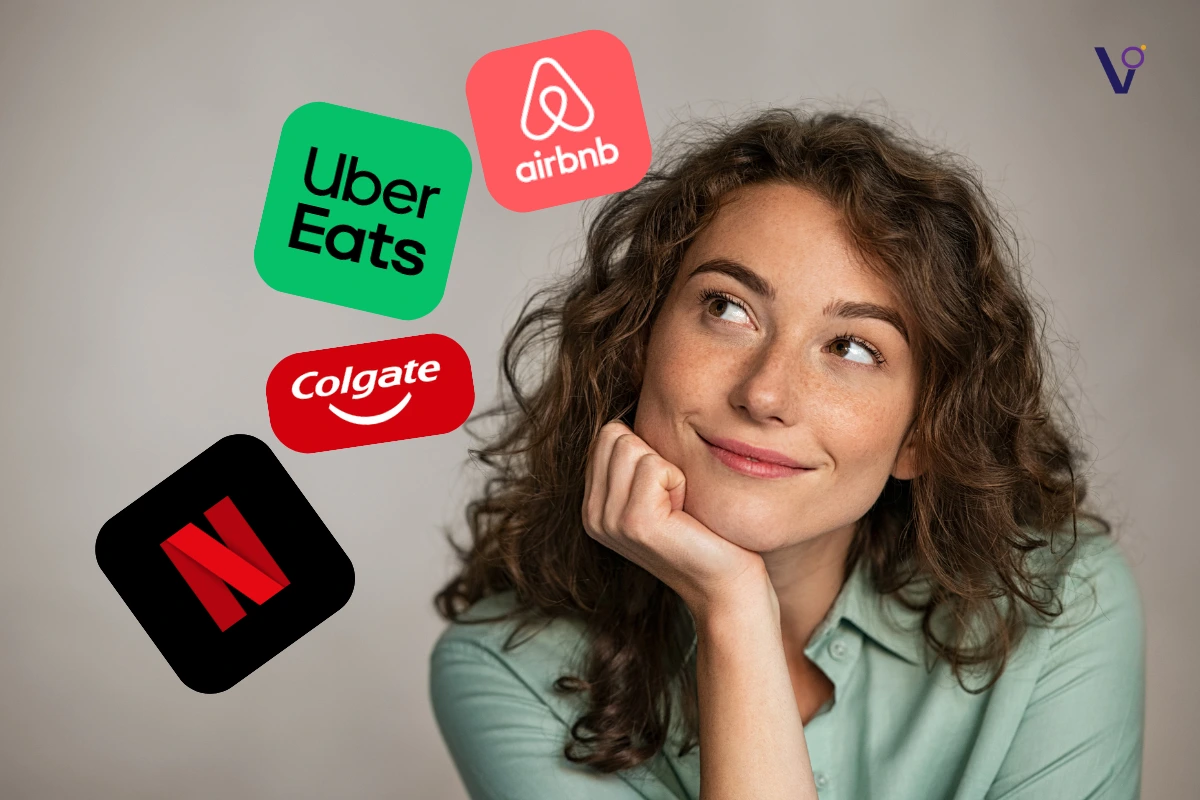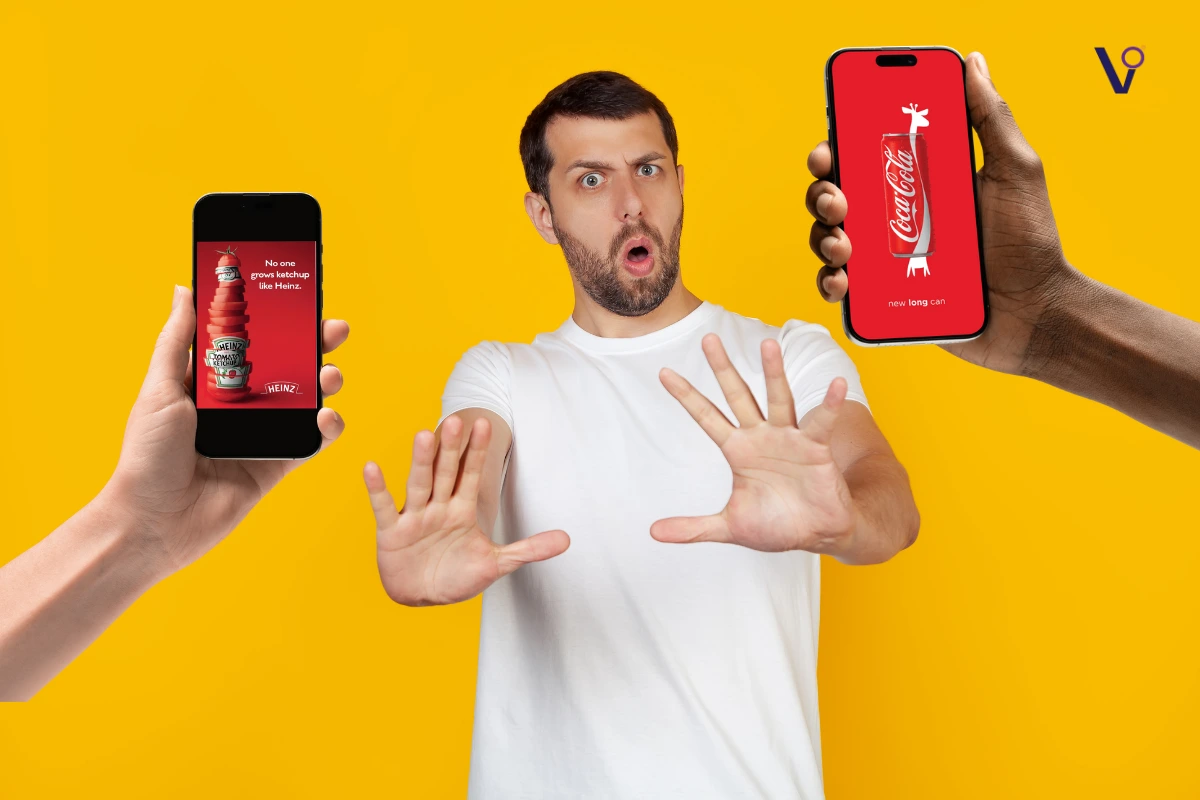Ahead are the AI marketing trends actually worth paying attention to this year. Let’s start with the obvious one. Everyone talks about generative AI. It started with written content, but it has already moved past that. There are creators duplicating themselves into AI versions. A good example is Rowan Cheung, who built 100,000 followers in a week using AI avatars. You port your voice using 11 Labs and create images with ChatGPT image tools. That’s how easy it has become to create your own AI avatars with HeyGen.

Imagine having an AI figure out daily topics, create scripts and use these products to deliver every day. Generative AI will reach a point where you can’t tell it’s AI. AI is transforming marketing. AI tools automate anything, making marketing move much faster.
1. AI Marketing Trends: Super Agents
Now let’s talk about super agents that are getting close to being fully autonomous.
- Think of Manis. Manis is fantastic.
- It quickly finds high-intent keywords to target with one prompt.
- Manis scans blog posts to check writer guidelines.
- Then it generates 21 blog post drafts in one go.
- It gets all that done in 30 minutes, something that would take weeks before.
It’s easier than ever to get into the creative space with no experience. You can ask ChatGPT to make YouTube thumbnails, which matters a lot for packaging using their “Deep Research” option. It can make ads for you too. Take a bland product image, like a water bottle. It can create concept options and send them to your designers. Your creative process moves faster, you get better results and you iterate quicker.
2. AI and Coding: No Experience Needed
Anthropic’s CEO says 99% of code will soon be generated by machines. The Replit CEO agrees.
Instead of learning how to code, Replit CEO Amjad Masad says "learn how to think, learn how to break down problems, learn how to communicate clearly." pic.twitter.com/hAYBCzI1Km
— vitrupo (@vitrupo) March 27, 2025
- Use tools like Cursor or Replit to vibe-code products. This means you prompt a product into existence when you’re in the mood.
- If you don’t know where to start, ask ChatGPT or your preferred AI model.
- ChatGPT remembers your past conversations. Ask it, “Based on what you know about me, what should I vibe-code?” and it will give you ideas.
You don’t need to code to get 80 to 90 percent of the way there. When you hand it off to developers, they’ll know what you’re trying to build. Do this and your developers will respect you more.
3. Search Everywhere Optimization
Another big trend is organic reach no longer belongs to Google alone. Traditional SEO is being replaced by search everywhere optimization.
- Fifteen years ago, organic traffic meant Google.
- Now you’ve got apps like YouTube, Amazon, Spotify, Instagram.
- Search attention is fragmented and you need to optimize wherever your audience is.
Website traffic is declining but not dead. It is still worth investing if your audience is there. This content you’re reading now is for YouTube, possibly for Shorts too. It also feeds podcasting on Spotify and Apple. The smart move is to optimize beyond search engines and go where people search.
4. Ad Creation Is About to Massively Change
Generative AI is also changing ad creation.
- Tools like ChatGPT and Sora make ad creatives easier than ever.
- Our product Carrot will store a repository of creatives that work for each client.
- It will detect the templates performing best at any time.
- We’ll ask, “Do you want us to create new ad templates based on what’s working?”
- Not revealing everyone’s ads but showing winning templates.
- One button will create multiple templates at once.
- You’ll test thousands of ad variations and quickly find the best performers.
The entire process will move a lot faster.
5. Deep Research Replaces Traditional Market Research
Think about this. A friend paid tens of millions to a consulting firm for a research report. It took weeks and hundreds of pages.
- Deep research just replaced traditional market research.
- Reports that once took weeks and tens of thousands of dollars now take minutes.
- ChatGPT offers deep research options. Grok has a think option. Gemini has one too.
- These tools do the thinking for you. It might take five, ten or thirty minutes.
No excuse now. Whatever your industry, you can do this. It’s built-in and available.
6. Agentic Workflows and Dynamic Funnels
Marketing funnels are about to change. Right now, they’re made up of rigid workflows that move leads through steps based on triggers.
- That structure is going away.
- Agentic workflows will decide what to do at each stage.
- Funnels will remain, but AI agents will make them dynamic.
- This is already happening with our product ClickFlow.
We thought about the repetitive jobs SEO managers deal with daily. Voice and video search are growing, changing how marketers write and optimize content. Future search will involve more voice and video optimization. AI-driven strategies are essential.
7. Rise of Video and Voice Search
These days, creators often produce long-form content, such as podcasts or webinars, and then repurpose it into short-form clips for platforms like LinkedIn or Instagram. For example, after recording a detailed video, they might use tools like Overlap to extract the most valuable moments and share those highlights as bite-sized content to reach a wider audience.
- Video and voice search are going to keep rising.
- There will be a lot more content repurposing.
The issue with most marketing agencies is they don’t understand what AI is doing to the industry.
Final Thoughts
That’s the full list of AI marketing trends for 2025. AI isn’t here to replace you. It’s here to replace mediocrity. It will make marketing smarter, faster and better.
Emerging AI trends include hyper-personalization, autonomous agents, dynamic content creation, deep research, agentic workflows, and the rise of video and voice search optimization.
The future of AI in marketing involves AI not just assisting but orchestrating strategy, enabling brands to anticipate user intent and personalize interactions in real time.
Gen AI in marketing refers to generative AI that automates content creation, ad generation, and campaign optimization, making marketing more efficient and scalable.



